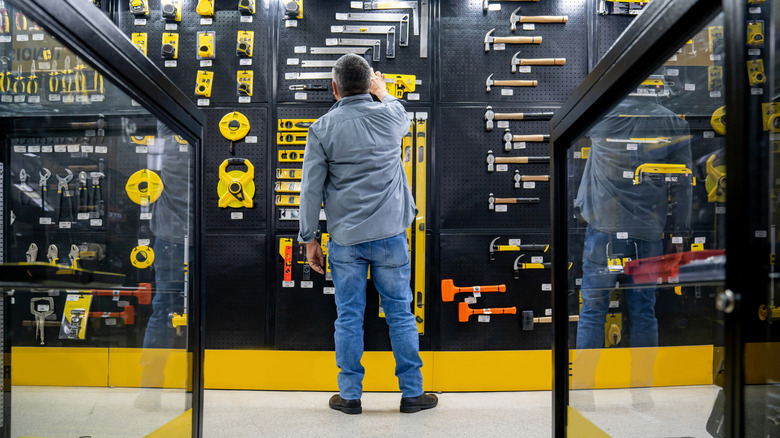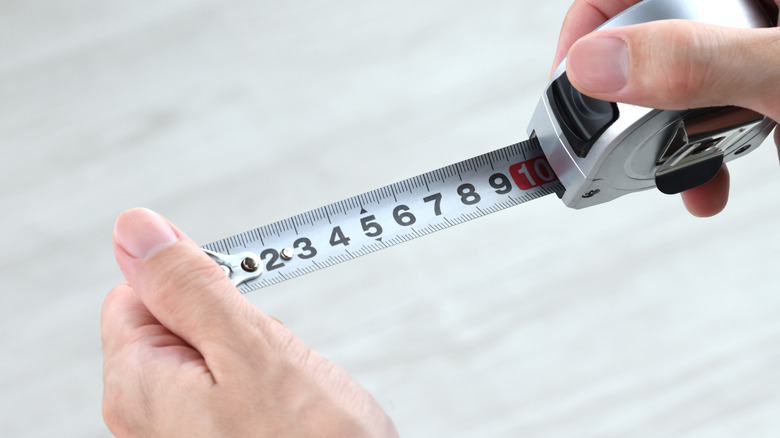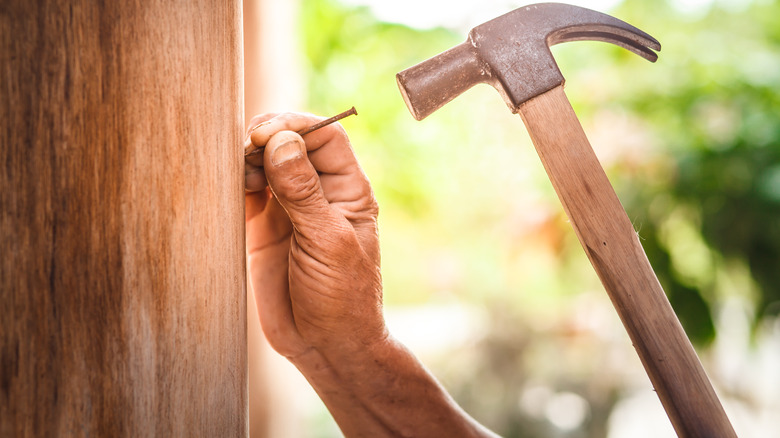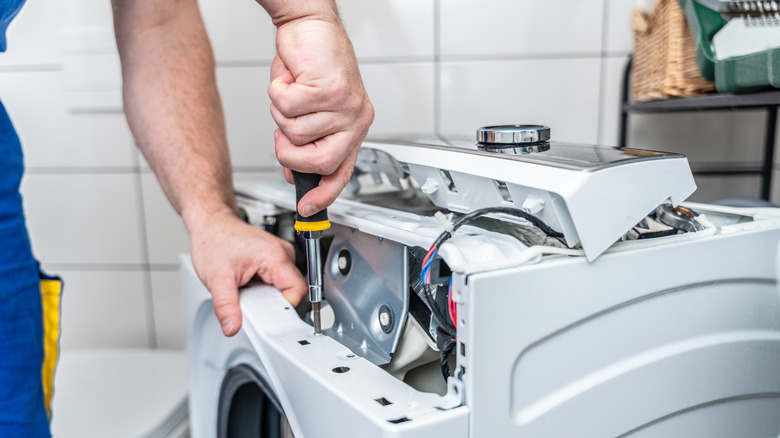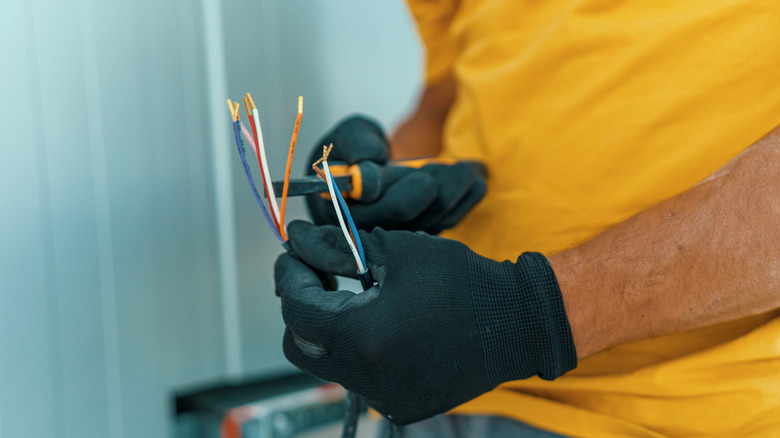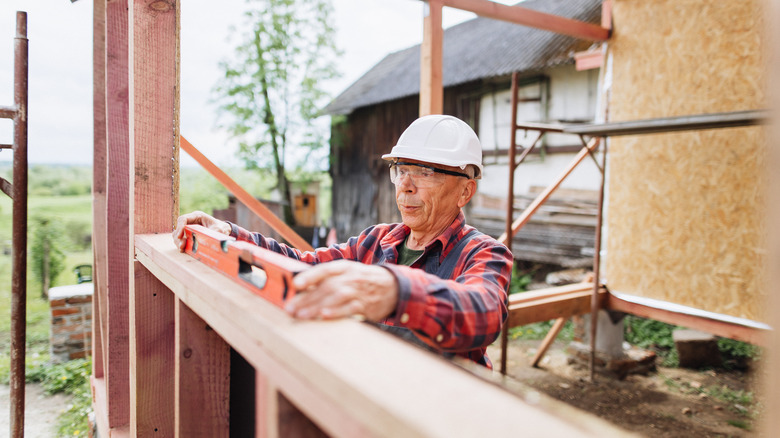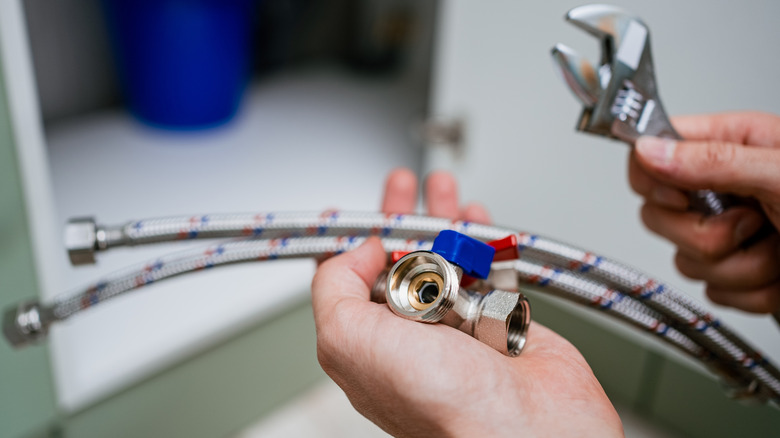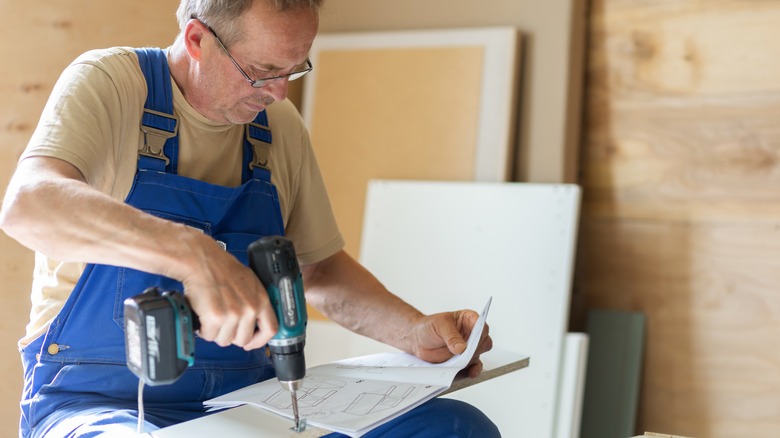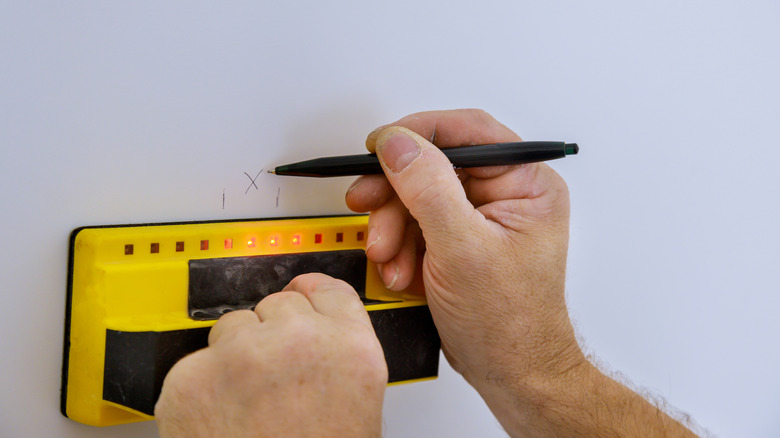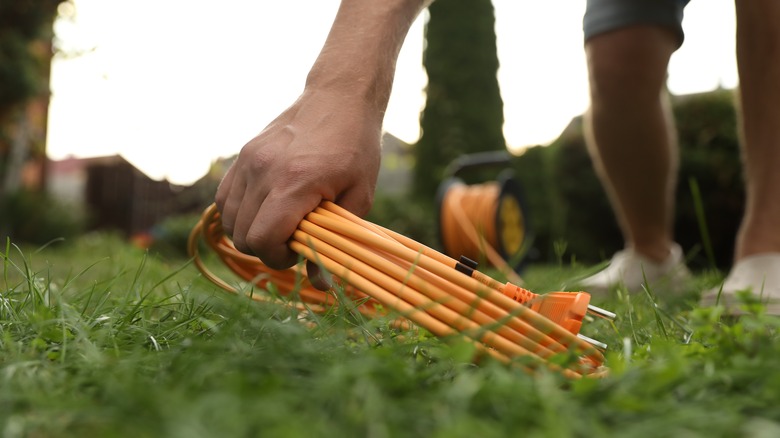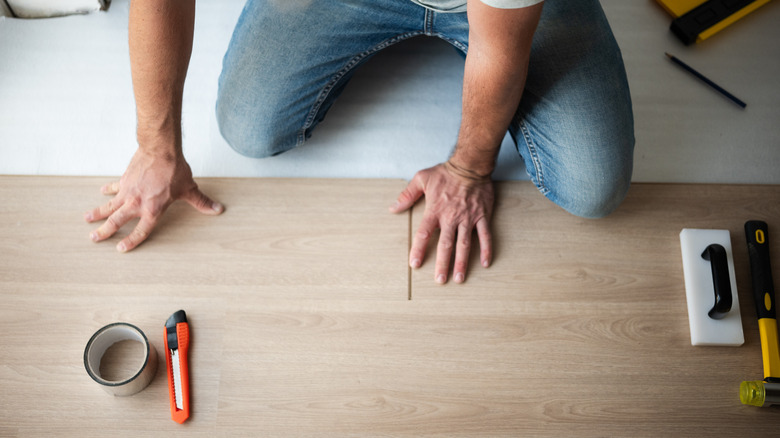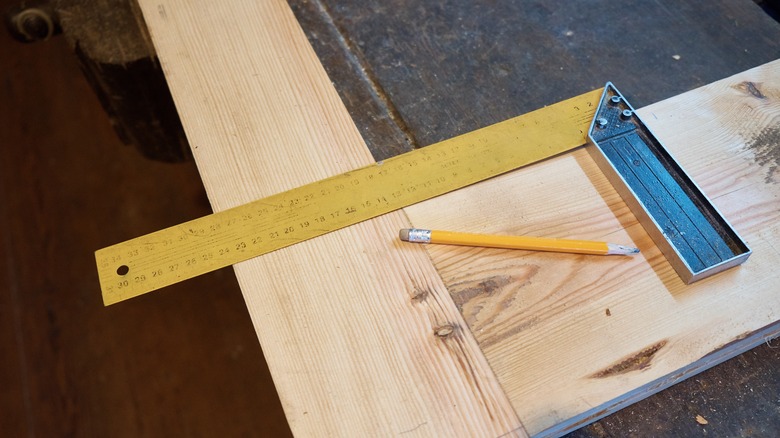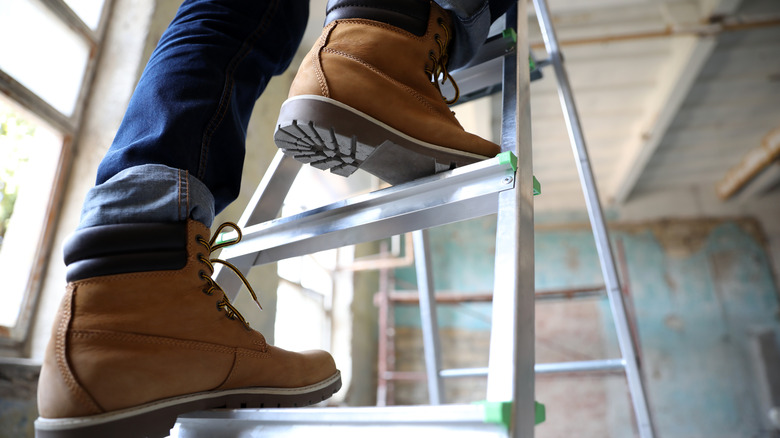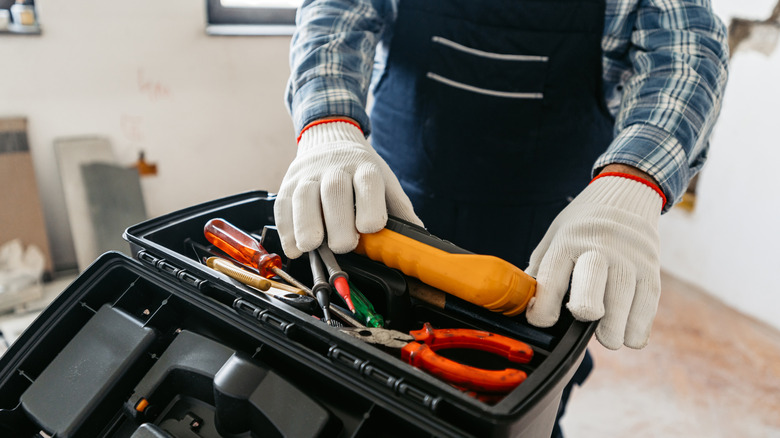13 Tools Every Retired Homeowner Should Have
After you retire, you generally have more time on your hands, but you may need to watch your budget a little more closely. DIYing your home maintenance and improvement jobs instead of outsourcing them is a great way to save money and experience the satisfaction that comes with taking care of your house and garden yourself. If you were too busy to do much around the house while you were working full-time, you may need to stock up on some basic tools. When you put together an all-purpose tool kit, you'll be able to handle many routine maintenance tasks and basic home improvement projects without having to make extra trips to the hardware store.
There's no way to be prepared for every potential issue, but there are some tools that every homeowner should have, including those who are retired. These are the ones that you'll reach for over and over again. Of course, you'll want to tailor your collection to your specific circumstances. If you live in an area with harsh winters, a small snowblower may get a lot of use. However, if you only get a smattering of flakes every few years, you'll be better off using your money and your storage space for tools that you'll reach for more often. The following list will serve as a jumping-off point to get you started.
Tape Measure
A sturdy, locking tape measure will come in handy for many projects, from redoing floors to hanging Christmas lights. A ¾ inch-wide, 25-foot tape measure with grooves on the metal tip is the ideal size to start. It will hold up well while you measure long distances without being too cumbersome. Thinner tape measures can be frustrating for larger projects because they collapse fairly easily. However, a smaller, secondary tape measure can come in handy if you want to take it to the store with you to measure furniture or other items before you make a purchase.
Hammers
A standard claw hammer is a must-have for any retired person's home toolkit. Look for one with a comfortable, cushioned grip. It will cut down on the vibrations that can make hammering painful. You may also want to add other types of hammers depending on the projects you're planning to work on. Having several will allow you to choose the perfect hammer for the job. A sledgehammer will be invaluable if you're doing demolition or major renovations, but it may be overkill for basic maintenance. A rubber mallet is useful if you don't want to leave marks on a surface. A tack hammer is a lightweight, elongated tool that's useful for precision work such as upholstery.
Screwdrivers
At a minimum, you'll need standard-sized flathead and Phillips screwdrivers. The sizes you'll reach for most often are zero and two for Phillips and ⅛-inch and 3/16-inch tips for flatheads. You can buy a set with multiple, interchangeable magnetic heads for more versatility. Buying screwdriver tips for your drill can make tedious projects, such as putting together furniture, go faster, but they're no replacement for manual metal screwdrivers.
Pliers
Pliers will come in handy anytime you need to grip or pull on small surfaces. A good pair of combination pliers will serve many purposes. They have a gripping surface for turning stuck bolts as well as a cutting surface for wire stripping. If you'll be doing a good bit of electrical work, needle-nose pliers are more specialized with smaller jaws for working with wires. You may also want a pair of crimping pliers to finish off your electrical work. Locking pliers can do double duty as clamps if you need both hands free.
Levels
Whether you're hanging a picture or installing a new TV, a level will ensure your work isn't crooked. After all, how can you get the most out of retirement while staring at slightly angled wall art? You can go high-tech with laser levels if you want, but a basic level with a fluid-filled capsule will get the job done, as well. These bubble levels are designed with several tubes that allow you to use them vertically or horizontally. You can buy them in a range of sizes, from several inches to several feet. If you're planning an intricate project, such as a complicated tile job, a laser level will project lines across long distances.
Wrenches
While pliers can do some of the same jobs wrenches can, wrenches give you more leverage and a better fit for loosening or tightening bolts. An adjustable wrench is ideal for a variety of uses, and every retired homeowner should have one. If you'd like to take on more specialized jobs, such as doing your own repairs on your lawnmower, it's worth investing in a set of socket wrenches. These come with a handle and multiple different-sized sockets. You can also get extension bars for them that make it easy to work in tight spaces.
Drill and bits
A drill will make short work of drilling holes or screws. It will save you a ton of time on simple jobs such as installing blinds. Cordless drills are the most convenient, but plug-in drills may give you an edge in power and are usually less expensive. If budget isn't a concern, a high-end cordless drill with a range of bits is your best option. These often come in their own storage bags with an extra battery if you need it for a bigger job.
Stud finder
An electronic stud finder senses a change in density behind the drywall to indicate where a stud is. When you're hanging heavy items such as shelves or light fixtures, you need to know where the stud is to support the weight. Electronic stud finders aren't terribly expensive, with starting prices around $25 and going up from there. Magnetic stud finders work by detecting nails or screws in studs, so their range is more limited. They are less expensive, often priced under $10. Many stud finders also have small, built-in levels so you don't have to drag out an extra tool for a small job.
Extension cords
Even if you're using cordless tools, you're likely to need a heavy-duty extension cord at some point. A weather-proof extension cord can be used outdoors for holiday decorations for the grandkids or can provide light from another source if you need to shut off a breaker to do electrical work. Unlike lightweight indoor extension cords, these have insulation and are set up for three-pronged plugs that higher-powered tools and appliances use.
Utility knife
A utility knife will cut many items more precisely than scissors. You can buy them with retractable blades for safer operation. Disposable utility knives typically have snap-off blades, so when they get dull, you simply remove that section. Other types of knives have reusable handles, and you replace the blade when it gets dull. Smaller craft knives can work well for some applications, but they should be an add-on rather than your primary knife.
Carpenter's square
With a carpenter's square, you can effortlessly measure perfect right angles. Many of these include a straight edge, so you don't need a separate one. This will help you mark precise lines and angles for cutting boards or hanging items. Look for one that's adjustable. It will measure 45-degree angles as well as 90-degree ones. Some even have a spot where you can attach a plumb bob if needed.
Ladders
A lightweight step ladder will allow you to change lightbulbs and reach high spots safely. For indoor use, a six or eight-foot step ladder will work for most applications. For hanging holiday lights outdoors or cleaning gutters, you'll need an extension ladder. These ladders can extend up to higher lengths, but must be propped against a stable surface for safety.
Toolbox
Once you've amassed all of your tools, you'll need a place to store them. This is listed last for a reason. If you wait until after you buy all of your tools, you'll have a better idea of what size toolbox you need. You can find toolboxes in almost any size. Lay out your tools and see what will work best. You'll be able to keep your tools better organized if you get a toolbox that has separate compartments versus a box with only one. Another option, if you have the space, is a pegboard. You can install one in your garage and hang your tools so they're easy to see and access.
